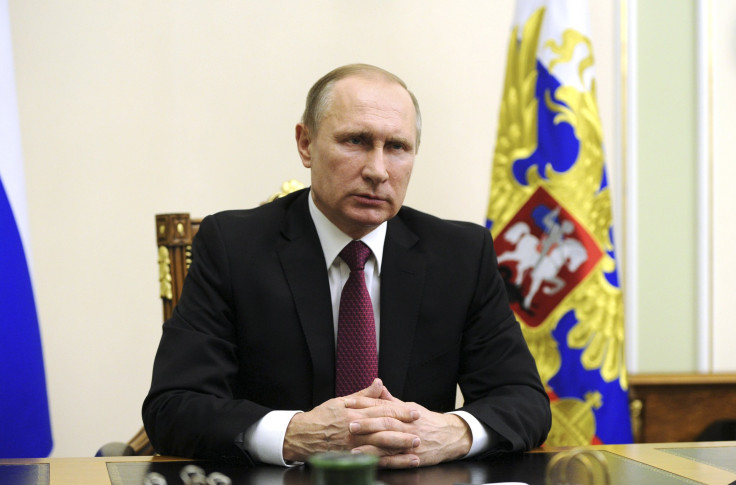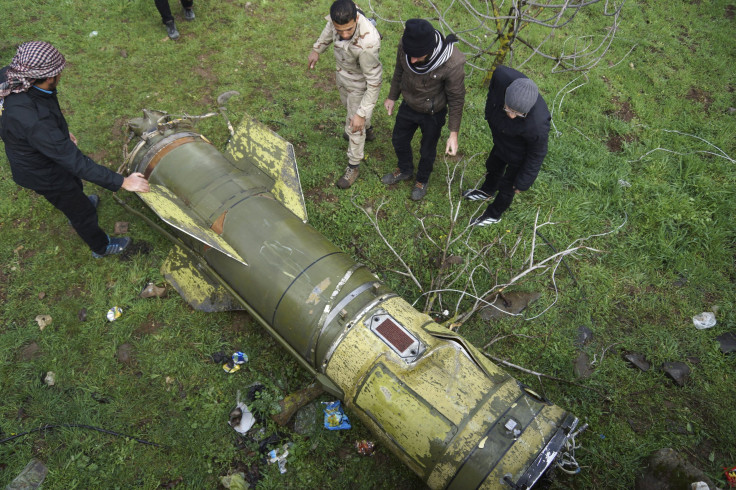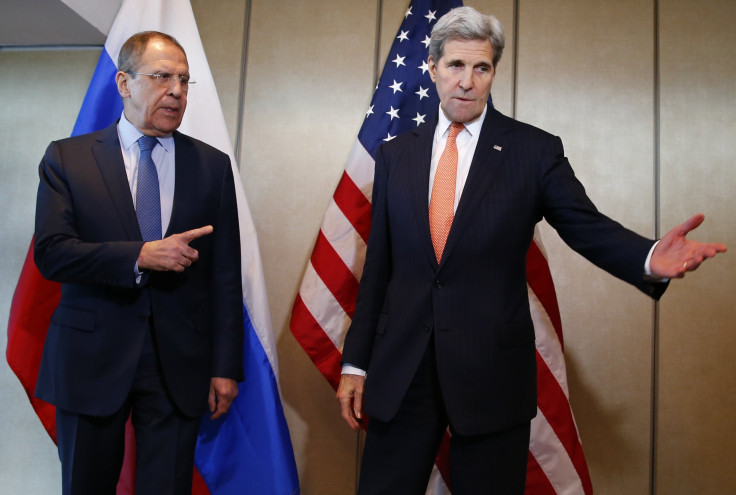Putin’s Personal Intervention Lends Weight To Syria Ceasefire

MOSCOW — Hope appeared to be growing Tuesday in Russia that a second attempt by Moscow and Washington to impose a ceasefire in Syria would lead to a cessation of hostilities after Russian President Vladimir Putin made a televised appearance to herald the deal.
In a recorded statement by Putin that was broadcast in its entirety by state-owned television channels — how the majority of Russians receive their news — he praised the deal as a “concrete result” and “a real chance to end many years of bloodshed and violence.”
Putin made no such statement when a similar deal was announced by the two countries this month and the deadline for the implementation of that ceasefire passed Friday with no letup in the fighting.
While the new agreement does not solve long-standing differences between the U.S. and Russia over Syria, Putin’s personal intervention and statements from other Russian officials Tuesday suggested that a partial ceasefire, due to come into effect Feb. 27, has a chance of success.

The agreement envisages Moscow co-opting Damascus and Washington ensuring the cooperation of Syrian rebels, and was announced in a joint statement by the U.S. and Russia Monday. The Kremlin has staunchly backed Syrian President Bashar Assad throughout the country’s five-year civil war, and Syrian media reported Tuesday that Assad had agreed to respect the cessation of hostilities.
Aided by an intensive Russian bombing campaign, Syrian government forces have made dramatic military gains in recent weeks and are close to encircling the northern city of Aleppo, which is partly controlled by the opposition.
An announcer on Russia’s state-owned Channel One television station described the ceasefire deal Monday morning as “an opportunity that can’t be ignored,” while a reporter noted that this was “the first time in several years the leaders of our countries have agreed in a joint statement.”
The reaction to the possible cessation of hostilities among other Russian officials appeared to be more positive than the response to the announcement of the similar deal unveiled Feb. 12. “[The statement] has given a strong push to ending the military phase,” said Vasily Likhachev, a deputy in Russia’s lower house of Parliament, the state-owned RIA Novosti agency reported Tuesday.
But the agreement does not mandate Russia to end its five-month bombing campaign in Syria that Moscow maintains is directed solely against Islamic extremists and terrorists. Western leaders have accused Moscow of attacking more-moderate opposition groups that are fighting Assad.

Putin said Monday the so-called Islamic State group and Jahab al-Nusra, the Syrian offshoot of al Qaeda, and “other terrorist organizations” would be “completely excluded” from the new ceasefire. While the Islamic State group, aka ISIS, is relatively isolated in Syria, experts warned that Jahab al-Nusra’s positions were closely entangled with other rebels' and that attacks on the group could serve as pretext for Russia to target a broader range of opposition military sites.
The new ceasefire is due to come into effect Friday at midnight in Damascus, although the U.S. and Russia must obtain the acquiescence of the relevant warring parties before then and delineate the territory under their control.
In his Monday statement, Putin drew a parallel to a 2013 deal between the U.S. and Russia — seen as one of the high points of Russian diplomacy in the Putin era — that led to the removal of chemical weapons from Syria, and hinted the new ceasefire could herald a similar moment of cooperation.
Some commentators said the current deal could provide the framework for the Kremlin to claim a victory.
“Come Saturday we can expect a guardedly triumphalist message on television that our policies led to the expected result: [U.S. President Barack] Obama and others were so scared by the might of Russia’s aviation group that, with shaking knees, they signed a ceasefire on our terms,” prominent Russian blogger El Murid wrote Monday.
© Copyright IBTimes 2024. All rights reserved.






















